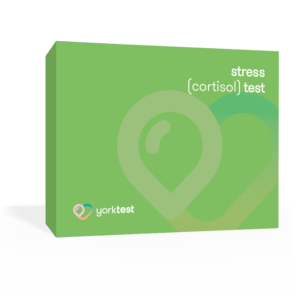

Children are a bundle of joy when they’re feeling carefree and happy, but what happens when you suspect your child is feeling under the weather?
Unlike a food allergy, which can present noticeable life-threatening symptoms, such as breathing difficulties, wheezing and hives, food intolerances are often difficult to pinpoint.
Not only can food intolerance symptoms take up to 72 hours to present itself, but the symptoms associated are often vague and wide-ranging.
What happens during a food intolerance?
To understand the link between food intolerance and behaviour, we first need to understand what happens when your little one eats an ingredient that they are intolerant to.
When the body has difficulty digesting certain foods, over time large food particles may enter the bloodstream. When this happens, the immune system can sometimes identify these food protein particles as “foreign†and produce IgG antibodies to “attack†the food.
Their immune system response can create inflammation and produce chemicals -one chemical called cytokines may inflame the gut, brain and respiratory tract. Cytokines may affect your child’s emotional and physical well-being, presenting mental symptoms such as behavioural issues.
Psychological food intolerance symptoms in children
Food intolerance symptoms in children may include:
- Brain fog
- Scattered activity
- Difficulty concentrating
- Irritability
- Anxiety
- Hyperactivity
Can diet affect my child’s behaviour?
Don’t presume your child’s symptoms are due to parental paranoia. There is a plethora of studies relating to food and children’s behaviour.
Research began in the 1960s when American Allergist, Dr Benjamin Feingold was treating children’s skin conditions and noticed that eliminating certain ingredients helped improve their skin. It also led to noticeable changes in behaviour.
From then, there has been substantial evidence which recognises the link between food intolerance and behavioural problems in children.
One well known study which you may recognise is from the work of Professor Jim Stevenson who showed that there is a link between certain food additives and increased hyperactivity[1]. Stevenson became interested in this area when he observed a positive effect restricted diets had on children with attention disorders.
In the study, Stevenson gave a concoction of additives and a placebo to a group of children. The additives, such as sunset yellow [E110], allura red AC [E129] and tartrazine [E102] to name a few, had a small effect on hyperactivity levels. After the study was published in the media, the study became a driving force for the UK government to attempt to remove those specific additives from children’s diets.
More recently, there is increasing research into a gluten-free and casein-free diet (casein is one of the proteins found in cow’s milk). However, there is a lack of evidence to say whether this diet offers any definite conclusions.
A higher gut permeability has also been found in children with Autism Spectrum Disorder (ASD), which means that food, toxins and substances have a higher chance of leaking into the bloodstream. This may exacerbate symptoms, such as behavioural issues.
Common food intolerances in children
Some common food intolerances in children could be:
- Dairy
- Egg white
- Egg yolk
- Gluten
- Soy
- Sugar cane
But did you know a child may also have more than one food intolerance? At yorktest, we have found that the average person who reacts positive has 4-5 food triggers. As a result, food intolerances can be challenging to pinpoint.
What can you do?
If your child is suffering from behavioural problems, there are a couple of ways you can find out what specific ingredients are aggravating your little one.
Firstly, you could try a food diary, however, this can often be time-consuming, and it does not take into account multiple food intolerances. The diet can also be restrictive whilst trying to figure out your child’s food intolerances.
Secondly, you could try a home-to-laboratory food intolerance†test which includes nutritional aftercare. Nutritional support is important when removing certain ingredients in a child’s diet as they need the right amount of nutrients to support their development.
The Junior Food Intolerance Test has been expertly developed for the little ones aged 2+. This home to laboratory test analyses your child’s IgG antibodies to 113 food ingredients, including the ones listed above. You will also receive a 30-minute phone call with a qualified nutritional therapist to make sure you are finding nutritious equivalent foods for your child.













